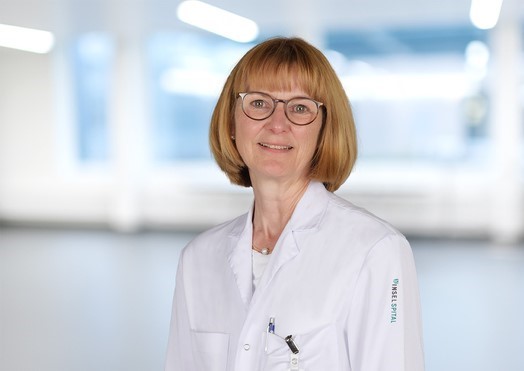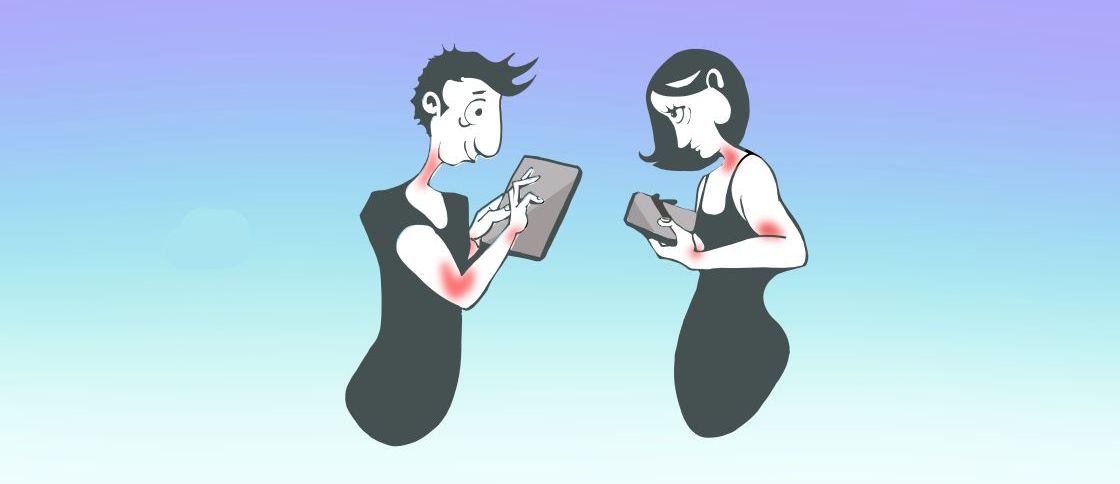For patients
- TREATswitzerland at a glance
- 1. Selection of study participants
- 2. Objectives
- 3. General information on the patient registry
- 4. Voluntary participation
- 5. Study procedure
- 6. Obligations of the study participants
- 7. Benefits for the participants
- 8. Risks and inconveniences
- 9. New findings
- 10. Data confidentiality
- 11. Costs
TREATswitzerland at a glance
| Why? | Investigation of medical care and response to treatment |
| Who? | Patients with moderate and severe neurodermatitis aged 12 and over |
| How? | Review of the patient information and consent to the registry study |
| What? | Completing the questionnaires |
| Where? | At the dermatology clinic/practice |
| When? | At the start, after 3 and 6 months, subsequently at three or six-month intervals, during routine examinations |
1. Selection of study participants
The TREATswitzerland registry study is enrolling patients who suffer from moderate or severe atopic dermatitis (neurodermatitis) and are 12 years or older.
2. Objectives
- Atopic dermatitis (neurodermatitis) has a significant impact on the quality of life of those affected and represents a socio-economic burden. However, detailed information on this is lacking in Switzerland.
- In our research project, we want to find out whether the medical care of patients with neurodermatitis is adequate, what the effects of neurodermatitis are and how treatment influences the course of the disease.
3. General information on the patient registry
- The study participants are asked about the effects of neurodermatitis on their quality of life, the effectiveness of the treatment and the course of the disease.
- The duration of the registry study conducted at several sites in Switzerland is not restricted. We would like to follow the individual participants for at least 24 months.
- We plan to enrol 700 patients.
- We are conducting this research project as required by the laws in Switzerland. Furthermore, we observe all internationally recognised guidelines. The competent ethics committee has reviewed and approved the research project.
4. Voluntary participation
Participation in the registry study is voluntary.
Those who do not want to participate in this research project or who subsequently want to withdraw their participation do not have to justify this. Treatment/care is guaranteed regardless of this decision.
5. Study procedure
- The study visits take place at the start (baseline), after 3 and 6 months and subsequently every 6 months or after 3 months if a new systemic therapy has been started.
- The questionnaires are usually combined with routine dermatology consultations. The data collected and the examination results are incorporated into the registry.
6. Obligations of the study participants
Patients taking part in this research project are asked:
- To adhere to the specifications and requirements of the research project set down in the protocol.
- To inform your study doctors about the course of the disease and to report new symptoms, new complaints and changes in your condition.
- To inform your study doctors about concurrent treatment and therapy with other doctors and about any medication you are taking.
7. Benefits for the participants
Participants will not personally gain any direct benefit from participation. However, the results may be important for the future treatment of all neurodermatitis patients.
8. Risks and inconveniences
- Completing the questionnaires will take 30-40 minutes in each case.
- The research project does not expose the participants to any risk/exposes them to only minor risks, such as an assessment of the skin findings by the doctor.
9. New findings
The study sites inform the participants about any new findings that may influence the benefit or safety of the therapy. After completion of the research project, the participants will receive a summary of the overall results.
10. Data confidentiality
For this research project, personal and health data are collected and processed, partly in automated form. During data collection, the data is encrypted. Encryption means that all reference data that could identify the participants (name, date of birth etc.) is deleted and replaced with a code. People who do not have access to this code list cannot identify you. The code list always remains at the study site (at the practice/hospital).
All data protection requirements are strictly observed. It is possible that the data must be transmitted in encrypted form, for example for a publication, and can be made available to other researchers.
The data could be important for answering other questions at a later date and could be sent to another database in Switzerland or abroad for this purpose and used for as yet undefined investigations (further use). This other database must comply with the same standards as the database for this project.
11. Costs
Participation in the registry study does not incur any additional costs for the participants or their health insurers.

Principal Investigator
Prof. Dr. med. Dagmar Simon
